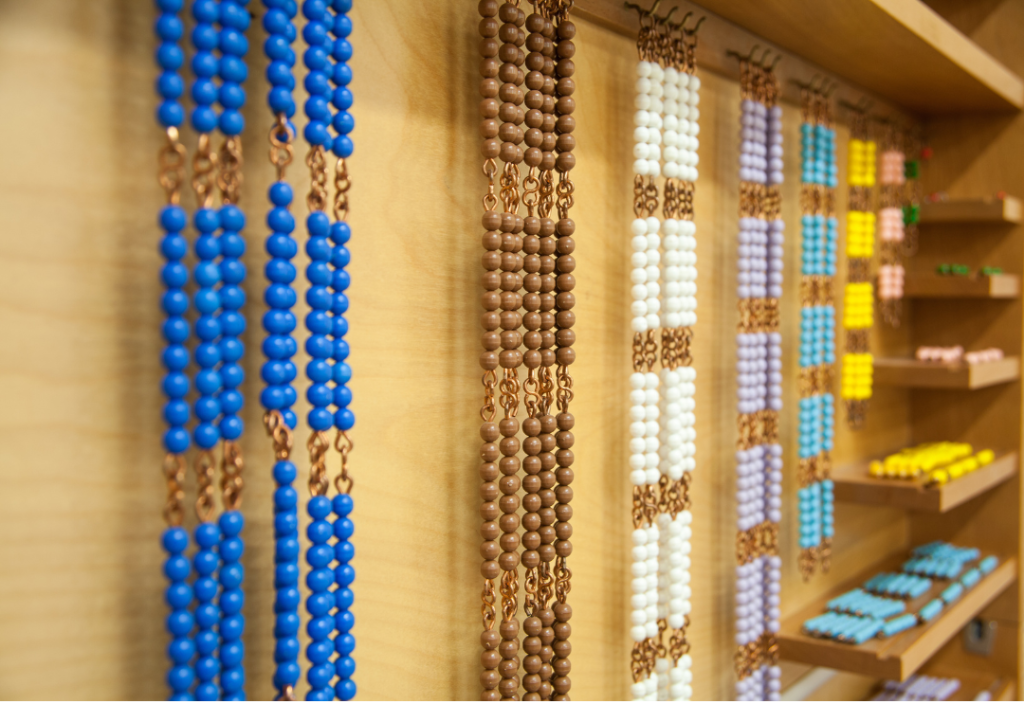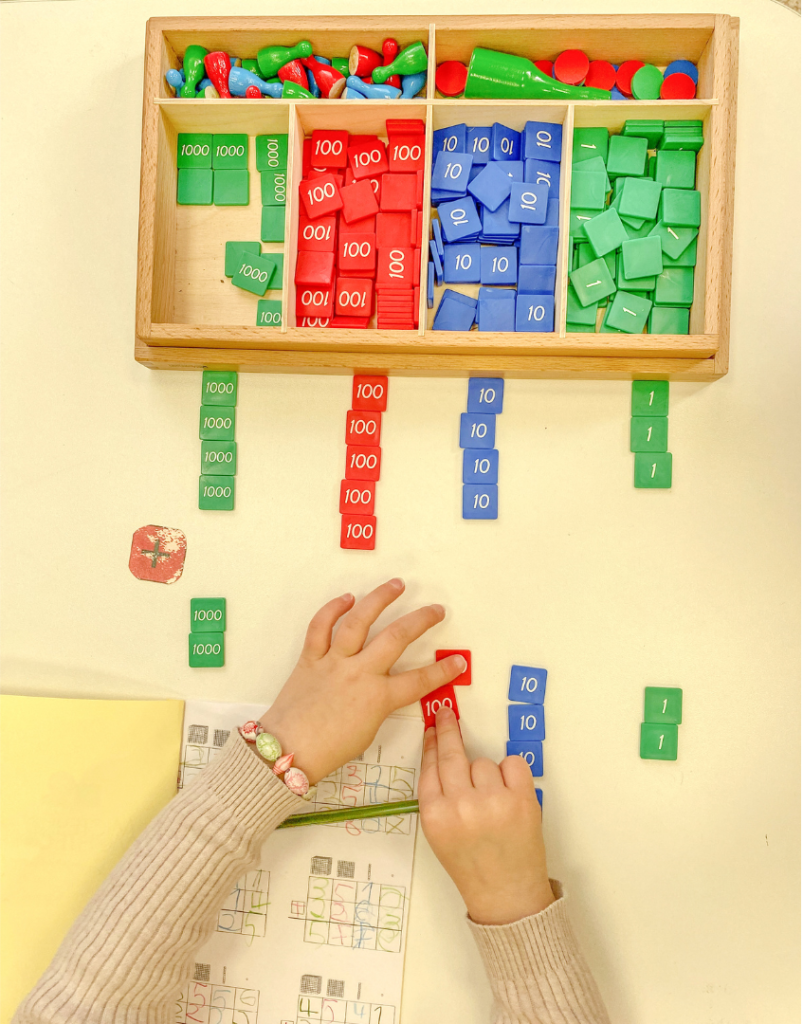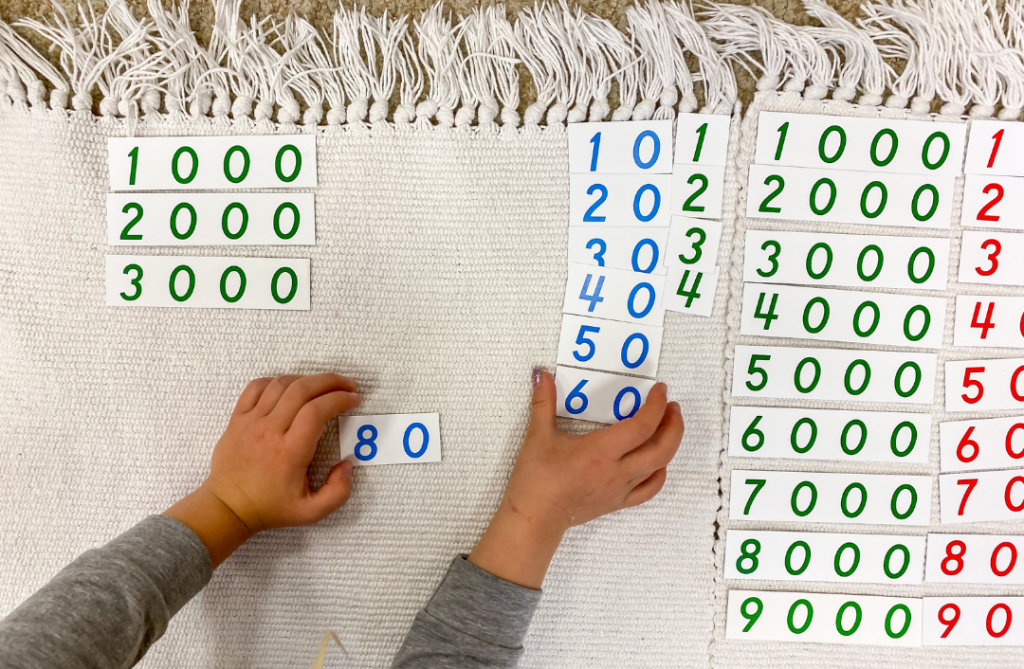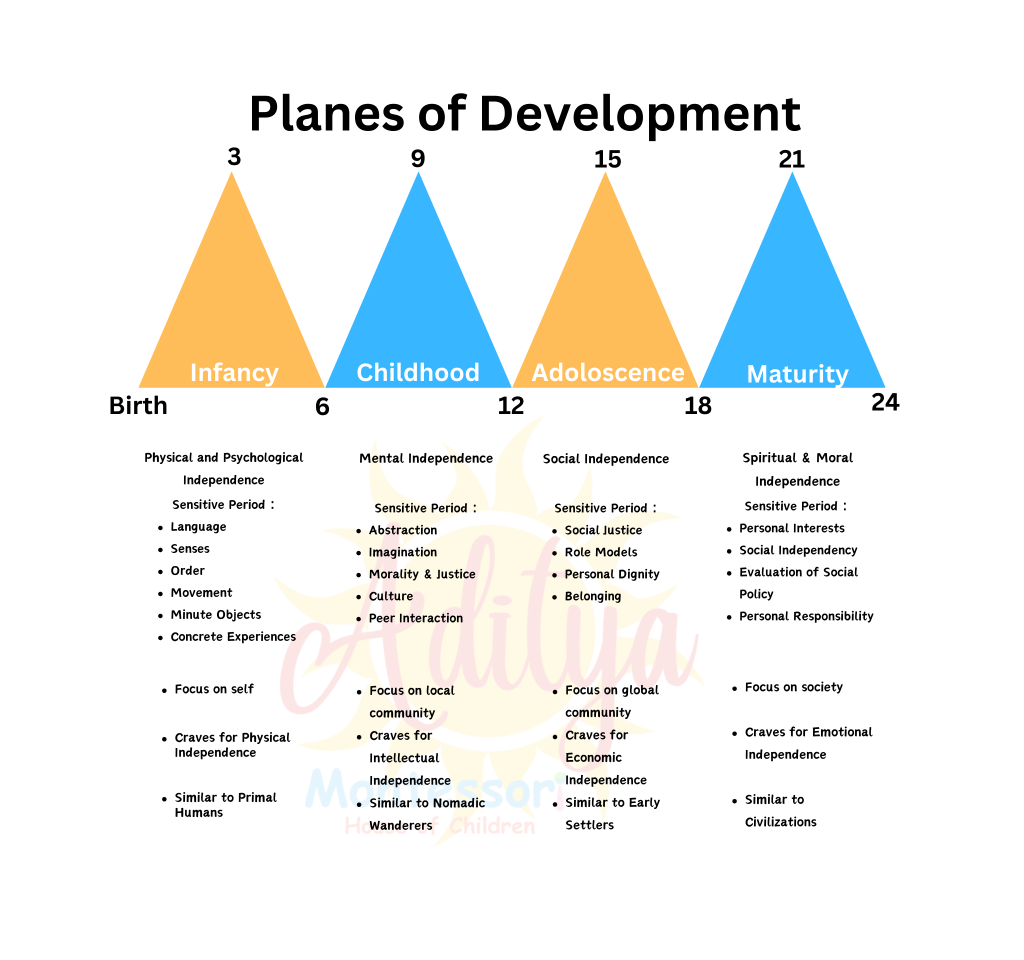What is Montessori
Montessori is an education pedagogy, that gives material to the hands of the child as he uses his senses to make his own connections and conclusions. This pedagogy follows a systematic approach devised by Dr. Maria Montessori. It was/is further improvised by her followers on the basis of her fundamental principles.
Who is Montessori
Maria Montessori is an Italian physician, educator, innovator, a feminist and above all a child rights advocate. She dedicated her life to study the development of the human being, his development and how his childhood works in his development.
What is the Montessori Method
The Montessori method is based on the philosophy that children are inherently curious and have a natural desire to learn. The method emphasizes independence, freedom within limits, and respect for a child’s individual pace of development. Some of the key elements are:
Prepared Environment: Classrooms are carefully designed to facilitate learning and exploration. They contain specially designed materials that are accessible to children at their own pace.
Prepared Adult: Prepared Adult or teachers in Montessori classrooms act as guides rather than lecturers. They observe children closely to understand their interests and developmental stages, and they tailor activities and interventions accordingly.
Mixed Age Group: Children of different ages in the same plane of development are typically grouped together in Montessori classrooms. Mixed-age classrooms support social development and peer learning.
Freedom within Limits: While children are encouraged to explore and learn independently, they are also given clear boundaries and guidelines to follow. This helps them develop self-discipline and respect for others.
Hands-On Learning: Montessori materials are designed to be manipulative and sensory-rich, allowing children to learn through touch, movement, and exploration.
Sensitive Periods: In Montessori education, sensitive periods refer to specific windows of time during a child’s development when they are particularly receptive to acquiring certain skills or knowledge. These periods are characterized by intense interest, focused attention, and rapid learning. Dr. Maria Montessori observed these sensitive periods through her work with children and emphasized the importance of recognizing and supporting them in educational practice. Recognizing and responding to these sensitive periods is fundamental to the Montessori approach, as it allows educators to create environments that are responsive to children’s developmental needs and interests, fostering optimal learning and growth. By providing opportunities for exploration, discovery, and self-directed learning within a prepared environment, Montessori education seeks to support children in maximizing their potential during these critical periods of development.
Respect for Individual Development: The Montessori method recognizes that each child develops at their own pace and in their own unique way. The prepared adult strive to create an environment where each child can flourish and reach their full potential. The Montessori method is highly regarded for its child-centered approach and its focus on nurturing independence, creativity, and a lifelong love of learning.



What are the planes of Development in Montessori and why are they important
The “planes of development,” which are distinct periods of growth and development that children go through from birth to adulthood, each characterized by specific psychological traits and developmental needs. Dr. Maria Montessori identified four planes of development:
First Plane (0-6 years):
– This period is characterized by rapid physical, cognitive, and emotional development.
– Children in this plane are sensory explorers, absorbing information from their environment through their senses.
– The Montessori method emphasizes the importance of providing a rich, stimulating environment filled with sensory experiences and developmentally appropriate materials.
– Activities in Montessori classrooms for this age group focus on practical life skills, sensorial exploration, language development, and the development of motor skills.
Second Plane (6-12 years):
– This stage is marked by a strong sense of imagination, a thirst for knowledge, and a desire for social interaction.
– Children in this plane are highly curious and eager to explore the world around them.
– Montessori education during this stage emphasizes exploration, discovery, and hands-on learning.
– The curriculum is interdisciplinary, allowing children to make connections between different subjects and explore topics in depth.
– Mixed-age classrooms support social development and peer learning.
Third Plane (12-18 years):
– This period is characterized by a search for identity, independence, and a growing sense of social consciousness.
– Adolescents in this stage seek to understand their place in the world and develop a sense of purpose.
– Montessori education during this stage focuses on providing opportunities for self-discovery, critical thinking, and personal responsibility.
– Curriculum may include real-world experiences such as internships, community service, and entrepreneurship projects.
– Teachers act as mentors, guiding students in their personal and academic growth.
Fourth Plane (18-24 years):
– This stage marks the transition to adulthood and is characterized by further exploration of identity, independence, and social responsibility.
– Young adults in this plane are preparing to enter the workforce or pursue higher education.
– Montessori education at this stage aims to foster independence, self-direction, and a sense of purpose.
– Curriculum may include opportunities for career exploration, internships, and independent research projects.
– Teachers continue to serve as mentors, supporting students as they navigate their transition to adulthood.
By aligning educational practices with the developmental needs of children at each plane, the Montessori method aims to support their natural growth and development, fostering a love of learning and a strong sense of self-confidence and independence.

Montessori education remains prevalent today for several reasons, despite being developed over a century ago,Why
Montessori education fosters a sense of independence, responsibility, and intrinsic motivation in students by empowering them to make choices, follow their interests, and take ownership of their learning journey. This emphasis on self-directed learning aligns with contemporary educational theories promoting student-centered pedagogies and learner agency.
Also in Montessori education, the concept of human tendencies refers to innate inclinations or natural urges that guide human behavior and development. Dr. Maria Montessori observed these tendencies through her work with children and identified them as fundamental to understanding and supporting the holistic development of the child.
By recognizing and honoring these innate human tendencies, Montessori educators strive to create environments that support and nurture children’s natural development, fostering independence, creativity, and a love for learning. Through purposeful engagement with the prepared environment and meaningful interactions with materials and peers, children are empowered to follow their interests, cultivate their strengths, and realize their full potential as self-directed learners and contributing members of society.
The enduring appeal of Montessori education can be attributed to its child-centered philosophy, focus on holistic development, emphasis on independence and self-directed learning, adaptability to diverse contexts, research validation, and alignment with contemporary educational trends and parental preferences. These factors have contributed to Montessori’s enduring legacy and continued relevance in the field of education.